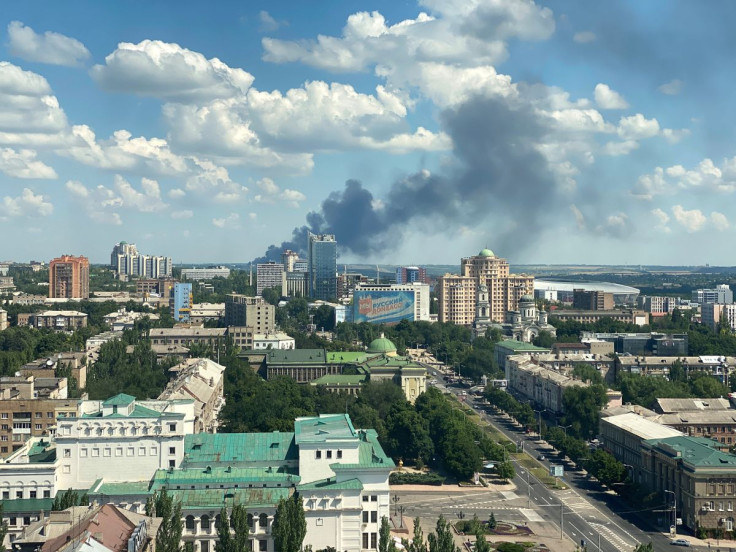Ukrainian Paramedic Reveals She Had To Sing Russian Anthem 20 Times A Day While In Captivity
KEY POINTS
- Taira was detained in March from Mariupol
- She was released last month from a Russian prison in Donetsk
- Taira said the prisoners were beaten if they didn't learn the Russian anthem
Ukrainian paramedic Yulia Paevskaya, who was recently freed from Russian captivity, has recounted the days she spent in a Donbas prison.
Paevskaya, nicknamed Taira, became famous after using a body camera to record her work in Mariupol while the port city was under Russian siege.
She was detained and taken prisoner in March from Mariupol and was accused of being a member of the far-right Azov Battalion. Though pro-Kremlin activists demanded she should be extradited to Donetsk so that she could be executed there, Taira was released in mid-June.
"I organized a bus, gathered women and children who were in the basement of the hospital, and planned to take them to Zaporozhye. I was absolutely sure that it would be the same as always because how many times have volunteers taken civilians out. There were never any problems. But at that time, they probably recognized me right away. And without explaining anything, they took me away," Taira was quoted by Current Time TV.
Her interrogation began three days later.
"That is, three days later I was in Donetsk. They started with the fact that I was from Azov, this is a crime for them. I didn't lie to them, I'm not from Azov and I have never been a part of Azov," the paramedic said.
She added that Russian officers tried to squeeze a confession out of her.
"And I didn't lie. Then they wove the version that I killed the parents of the children, there were two orphans in that bus," Taira told the news outlet.
She also detailed the constant psychological pressure inflicted by the Russians in addition to other methods of inquiry.
"This is the worst thing, because this pressure never stops. They constantly try to brainwash you. We sang the Russian anthem at least three times a day. Sometimes up to 20. A portrait of Putin hung in every cell," Taira said, adding that the prisoners would be punished if they fail to learn the Russian national anthem.
According to Taira, she was put up in a cell that was "three by six meters." "There were 22 women there at the same time for more than a month, almost two. There were ten two-story bunks. Their condition was very serious," she recalled.
The footage recorded by Taira was passed on to an Associated Press team on March 15. After her release, the woman had taken to Facebook to detail her detention conditions, which she described was more like that of a concentration camp. Taira had claimed that she weighed just 50 kilograms at the time of the release.

© Copyright IBTimes 2024. All rights reserved.





















